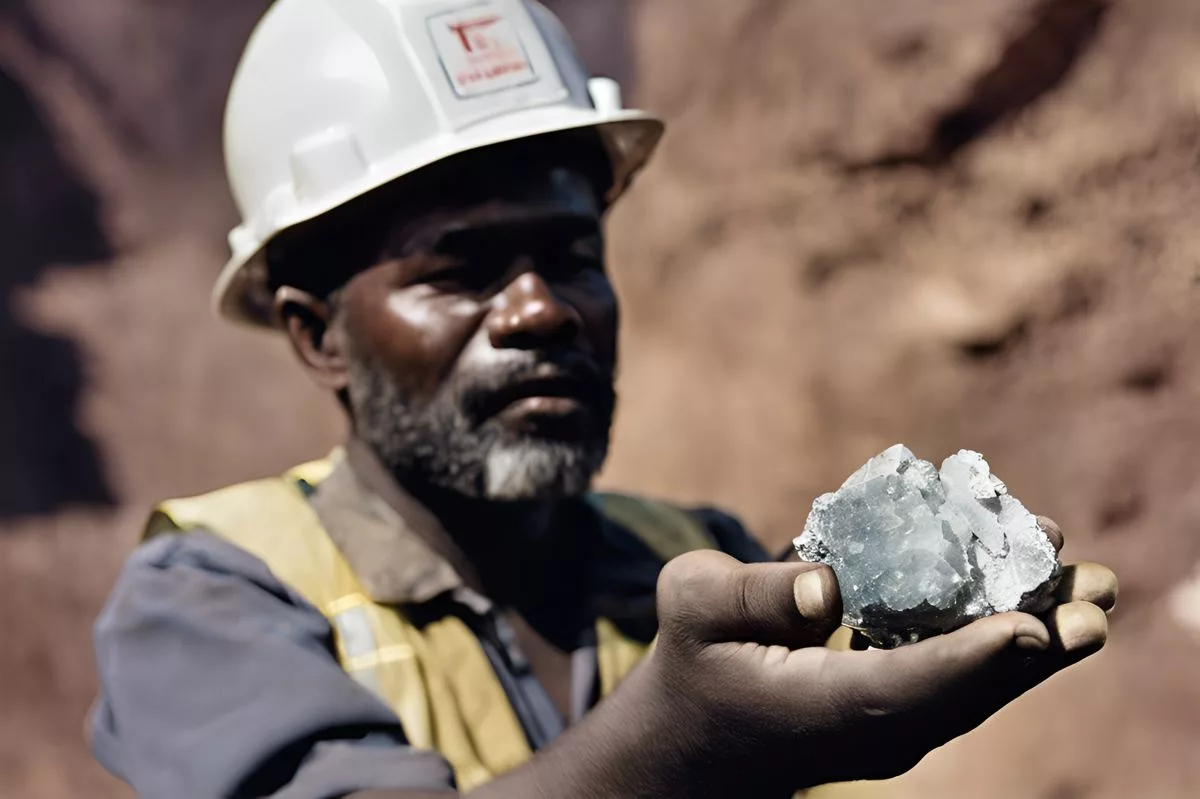The Worker Share Ownership Conference in South Africa marks a significant step towards social and economic transformation, with over half a million workers being part-owners of their companies. Worker share ownership programmes enhance morale, productivity, and innovation within companies, offering a pathway to economic inclusion. These schemes have evolved remarkably, providing workers with a seat at the decision-making table, strategically influencing corporate decisions, and nurturing partnerships to unearth opportunities for growth, investment, and job creation. The ongoing collaboration between governmental bodies, the labor force, the private sector, and other stakeholders is vital in creating a favorable environment for the success of employee share ownership programmes.
Worker Ownership: A Path to Empowerment
Worker share ownership programmes, rooted in the BBBEE Act, play a critical role in employee share ownership programmes. These schemes have evolved remarkably, with over half a million workers being part-owners of their companies. They enhance morale, productivity, and innovation within companies, and offer a pathway to economic inclusion.
Within the opulent walls of Johannesburg’s Sandton Convention Centre, a critical conversation echoes, signaling the advent of South Africa’s Worker Share Ownership Conference. This inaugural event, presided over by President Cyril Ramaphosa, signifies South Africa’s ardent desire for social and economic transformation. This convening marks the end of a historical epoch — three decades of liberation from the constraints of apartheid, and 20 years since the inception of the Broad-Based Black Economic Empowerment Act (BBBEE), a colossal move towards financial fairness and justice.
President Ramaphosa’s speech instigates a self-reflective analysis, contemplating South Africa’s endeavours to rectify and heal the socio-economic imbalances of yesteryears. The nation has made considerable strides since democracy was established in 1994, implementing competition laws to support small and medium businesses, promoting healthy labor relations, and inspiring entrepreneurship among black South Africans. Nonetheless, as the President astutely states, the path towards complete justice and equality still stretches ahead.
Worker Ownership: A Path to Empowerment
A key way to assess economic empowerment is through the expansion of ownership and influence over the economy, particularly among black South African women and men. In this context, worker share ownership programmes emerge as an impressive tool. Rooted in the BBBEE Act, the Competition Act, the Companies Act, and other significant legislative measures, these programmes play a critical role in the Employee Share Ownership Programmes.
Under the guidance of the Department of Trade, Industry and Competition, organizations like the Industrial Development Corporation and the National Empowerment Fund provide crucial funding for these programmes. These initiatives also align with the Black Industrialist Programme, offering an additional pathway for the government to equalize economic opportunities.
The transformative power of worker ownership programmes is substantial, but often overlooked. Over time, these schemes have evolved remarkably. A study by the Department of Trade, Industry and Competition reveals that more than half a million workers are part-owners of their companies. This staggering figure equates to one in every twenty private-sector workers.
Birth of a New Breed of Worker-Owners
These worker-owners cut across various sectors; they are miners possessing a share of the country’s mineral wealth, garment and auto industry workers owning shares in factories, and agricultural workers vested in the land they till. They are the Tintswalos, the progeny of democracy, epitomizing the spirit of the Freedom Charter that enunciates ‘the People shall share in the country’s wealth’.
Worker share ownership has profound implications for productivity and expansion. Workers, as co-owners, gain more than just a share in the profits. They earn a seat at the decision-making table, strategically influencing corporate decisions. This not only enhances their comprehension of the challenges their companies face but also nurtures partnerships to unearth opportunities for growth, investment, and job creation.
The Advantages of Worker Share Ownership for Everyone
Worker ownership initiatives promote a robust and resilient economy that distributes its benefits equitably. They enhance morale, encourage productivity and inspire innovation within companies. Workers, when valued by their employers, are more likely to suggest ideas for process, product, and service improvement. They are more driven to excel when they have a stake in the venture’s success.
The conference seeks to devise a model of worker ownership that caters to the needs of South Africa’s economy. It presents a chance to address crucial issues such as establishing effective funding and dividend policies, and improving governance structures. Worker ownership should extend beyond black economic empowerment and serve as a means for broader economic inclusion.
The ongoing collaboration between governmental bodies, the labor force, the private sector, and other stakeholders is vital in creating a favorable environment for the success of employee share ownership programmes. The progress achieved would not have been possible without the collective efforts of these entities. It is equally important to continue nurturing this spirit of partnership for the future success of these programmes and for a more sustainable worker shareholder system.
By advocating worker ownership, we are constructing a future where every worker has a vested interest in their company’s success, where innovation thrives, and where prosperity is inclusive. Together, we are laying the foundation for a more equitable and prosperous society where no one is left behind.
1. What is the Worker Share Ownership Conference in South Africa?
The Worker Share Ownership Conference in South Africa is an event that marks a significant step towards social and economic transformation, with over half a million workers being part-owners of their companies. This event seeks to devise a model of worker ownership that caters to the needs of South Africa’s economy and presents a chance to address crucial issues such as establishing effective funding and dividend policies, and improving governance structures.
2. How do worker share ownership programmes enhance morale, productivity, and innovation within companies?
Worker share ownership programmes have evolved to provide workers with a seat at the decision-making table, strategically influencing corporate decisions, and nurturing partnerships to unearth opportunities for growth, investment, and job creation. Workers, as co-owners, gain more than just a share in the profits. They earn a seat at the decision-making table, strategically influencing corporate decisions. This not only enhances their comprehension of the challenges their companies face but also nurtures partnerships to unearth opportunities for growth, investment, and job creation.
3. How does the ongoing collaboration between governmental bodies, the labor force, the private sector, and other stakeholders contribute to the success of employee share ownership programmes?
The ongoing collaboration between governmental bodies, the labor force, the private sector, and other stakeholders is vital in creating a favorable environment for the success of employee share ownership programmes. The progress achieved would not have been possible without the collective efforts of these entities. It is equally important to continue nurturing this spirit of partnership for the future success of these programmes and for a more sustainable worker shareholder system.
4. What is the role of worker share ownership programmes in employee share ownership programmes?
Worker share ownership programmes play a critical role in employee share ownership programmes, rooted in the BBBEE Act. These programmes have evolved remarkably, providing workers with a seat at the decision-making table, strategically influencing corporate decisions, and nurturing partnerships to unearth opportunities for growth, investment, and job creation.
5. How do worker ownership programmes promote a robust and resilient economy that distributes its benefits equitably?
Worker ownership initiatives promote a robust and resilient economy that distributes its benefits equitably. They enhance morale, encourage productivity and inspire innovation within companies. Workers, when valued by their employers, are more likely to suggest ideas for process, product, and service improvement. They are more driven to excel when they have a stake in the venture’s success.
6. How do worker ownership programmes offer a pathway to economic inclusion?
Worker share ownership programmes offer a pathway to economic inclusion. These programmes have evolved remarkably, providing workers with a seat at the decision-making table, strategically influencing corporate decisions, and nurturing partnerships to unearth opportunities for growth, investment, and job creation. The transformative power of worker ownership programmes is substantial, but often overlooked. A study by the Department of Trade, Industry and Competition reveals that more than half a million workers are part-owners of their companies, equating to one in every twenty private-sector workers. This means that worker ownership is a tool for economic empowerment that expands ownership and influence over the economy, particularly among black South African women and men.












